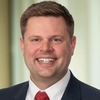Structuring Freedom to Operate Opinions: Reducing Risk of Patent Infringement
Combating Troubling FTO Results, Overcoming Potential Roadblocks, Addressing Impact of Post-Grant Process on FTO Opinions

Course Details
- smart_display Format
On-Demand
- signal_cellular_alt Difficulty Level
Intermediate
- work Practice Area
Patent
- event Date
Thursday, February 29, 2024
- schedule Time
1:00 p.m. ET./10:00 a.m. PT
- timer Program Length
90 minutes
-
This 90-minute webinar is eligible in most states for 1.5 CLE credits.
This CLE course will guide patent counsel preparing freedom to operate (FTO) opinions for companies developing new products. The panel will outline best practices for drafting FTO opinions to reduce infringement risks and exposure to potential damages awards.
Faculty

Mr. Hamp assists clients in all aspects of intellectual property law, with a particular focus on the litigation and enforcement of patent, trademark, copyright and trade secret rights. He represents clients from a variety of industries in the preparation and prosecution of utility and design patent applications before the USPTO, including applications related to the chemical, healthcare, mechanical, computer software, sporting goods, and household products fields. Mr. Hamp has successfully prepared and/or prosecuted applications in many technology areas, including for pharmaceuticals, food and beverage compositions, chemical catalysts, malware detection methods, and semiconductor devices. He also provides counseling and opinion work for utility patent, design patent, trademark and copyright matters, including freedom to practice and validity assessments, domestic and foreign infringement investigations, drafting of license and transfer agreements, and other strategy counseling.

Mr. Balich is a trial and appellate lawyer who protects clients’ technology and defends their freedom to use it. His experience includes successfully defending multiple patent owners—from manufacturers to public universities—facing inter partes review challenges at the PTAB where the PTAB denied institution. Mr. Balich also focuses his practice on trade secrets. In addition, he regularly represents defendants in patent and commercial litigation, including Hatch-Waxman ANDA litigation, before district courts and at the ITC. Mr. Balich’s counseling and litigation experience spans a diverse set of industries including pharmaceuticals, biotechnology, medical devices, data storage media, electro-hydraulic devices, military equipment, and consumer electronics.

Mr. Fasse’s practice emphasizes client counseling and patent prosecution in a wide variety of technologies, with an emphasis on healthcare, medical devices, and other biological and medical fields as well as various green technologies. He helps clients from startups to multinationals to develop competitive worldwide patent strategies and to establish solid and defensible patent portfolios. Mr. Fasse performs competitive patent analyses, identifies third-party patent risks, and provides patentability and freedom to operate opinions. He also has experience in opposing and defending patents before the European Patent Office and in U.S. litigation and post-grant proceedings.
Description
Patent FTO searching and analysis is a critical component in developing a product. Counsel must prepare product inventors to document information for sound decisions regarding whether they have the FTO in a particular technology area.
The Federal Circuit has emphasized the continuing relevance and importance of FTO opinions for avoiding enhanced damages in post-Halo cases. The Supreme Court also underscored the importance of non-infringement opinions as a defense to active inducement of infringement in its decision in Commil USA v. Cisco Sys.
Companies should work with counsel to develop an FTO opinion before proceeding with research, development, and commercialization of a product or service to minimize the risk of infringing another's patent rights. Further, counsel should anticipate and prepare for potential post-grant validity or patentability challenges and their potential impact on FTO analysis.
Listen as our authoritative panel of patent attorneys discusses best practices when drafting FTO opinions for companies planning to develop new products. The panel will discuss the impact of post-grant challenges and strategies for employing FTO opinions.
Outline
- Legal framework for willful and induced patent infringement and advice of counsel defenses
- Statutes and major cases
- Privilege and waiver
- Comparison of different FTO strategies and actions
- Considerations for drafting and developing FTO opinions
- Post-grant proceedings and FTO
Benefits
The panel will review these and other crucial issues:
- What legal framework is used to assess a party's intent for willfulness/enhanced damages and inducement of infringement, and what aspects are still unsettled?
- What are best practices for patent counsel when analyzing FTO issues and structuring FTO opinions?
- When should counsel seek FTO opinions to protect new research and products from infringement claims?
- What is the impact of the post-grant process on FTO opinions?
Related Courses

EU Design Law Changes: Navigating Revised Frameworks and Broadened Scope, Maximizing Protections
Monday, April 7, 2025
1:00 PM E.T.

Patent Inventorship: Best Practices for Determination and Correction
Friday, April 18, 2025
1:00 p.m. ET./10:00 a.m. PT